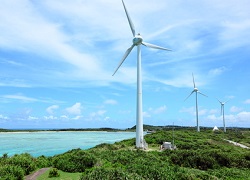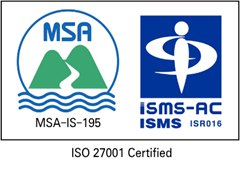Green Technology
Environmental and energy industries in Japan

Japan imports nearly all of its fossil fuels, which are its main energy source. Therefore, the country is extremely vulnerable to changes in the energy situations in the Mideast and elsewhere, making a stable supply of energy a constant challenge. Having been hit twice by oil shocks, Japan has made every effort to diversify risks by shifting to alternative energy sources. At the same time, efforts were made to raise its energy self-sufficiency ratio. However, in the wake of the nuclear power plant accident triggered by the Great East Japan Earthquake in 2011, dependency on fossil fuels started to rise again after successive shutdowns of nuclear power plants. Dependency on fossil fuels for electric power supply in 2012 reached as high as 90%, which had been 60% before the earthquake. Under these circumstances, the government formulated the fourth “Basic Energy Plan” in April 2014. According to the plan, the government will promote energy conservation in order to respond to drastic changes in the situation and to secure a stable energy supply. The government will also work on reforming the electric power and gas systems by 2020.
Approximately 90% of greenhouse gas emissions in Japan are believed to be carbon dioxide emissions arising from energy consumption. These emissions have increased not only in Japan but throughout the world, from around 21.0 billion tons in 1990 to around 30.5 billion in 2010. CO2 emissions are still on the rise. Substantial reductions in greenhouse gas emissions are required to combat global warming.
Renewable energies, including wind and solar power, are now drawing attention to address the issues mentioned above. The market size of the environmental industry has continued to grow, reaching 86 trillion yen in 2012, up 4.8% year on year. Society has high expectations for the environmental industry and technologies, and the related industries are regarded as an important field to reignite Japan’s growth potential. The Ministry of Environment sets targets for the year 2020, aiming at a new environmental market worth 50 trillion yen and creating 1.4 million jobs.
|
|
and others
Some companies in Japan supply the latest technologies in a diverse range of environment-related fields.
One Japanese biotechnology company is expected to play an important role in various areas, including practical applications of biofuels and functional foods. This company is aiming to solve a broad range of problems on the planet, including global food insufficiency, environmental issues, and energy issues by using a living organism. In one project, it is planning to develop a jet fuel that applies biotechnology to power aircraft in the future, without increasing the amount of carbon dioxide in the air. Unlike other biofuels, this jet fuel does not require conversion from food.
Another company, which was established in 1997, offers solutions related to renewable energy. Among its backers is a sovereign wealth fund. This company is conducting research and analyses in the U.K. on effective utilization and promotion of energy generated by a small wind power generator. The development of this generator was carried out in collaboration between industry, universities and government and has taken four years to complete. This generator features light weight, low noise, and highly efficient power generation. Its lightness makes it possible to keep generating electricity while controlling itself under strong winds and storms. This enables the generator to produce 100kWh or more power in a month in areas with average wind speeds around 5m/s. A unique process is applied to the blade so that noise is 1/50th the level of other blades. This generator is expected to be used in various places such as ordinary homes and office building rooftops where heavy generators cannot be installed.
Some business ventures in the environmental field are playing an important role not only in Japan but around the world.
An electric motorcycle manufacturer has come to hold the largest share in Japan in a mere two years since its establishment. As of 2009, around 80% of gasoline motorcycles were sold in Asian countries. For this reason, the air pollution caused by exhaust gas emitted from gasoline motorcycles has become a serious problem in these countries. This company had intended to enter the Asian market since it was founded. Sales of its electric motorcycles were launched in Vietnam in September 2014. Because these motorcycles do not emit exhaust gas, they are expected to lessen air pollution in Asian countries.
We can help you find Japanese business ventures engaging in businesses related to the environmental and energy.
Please contact us for further details.


